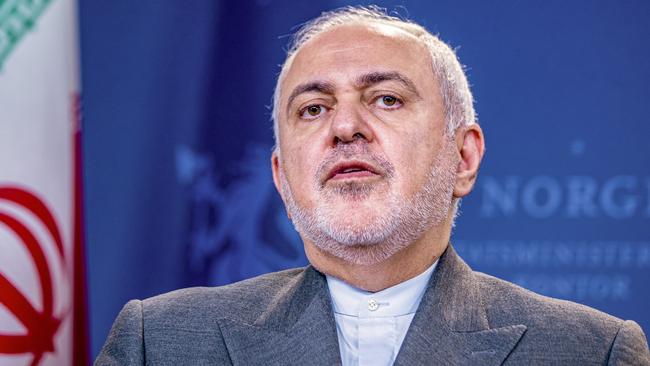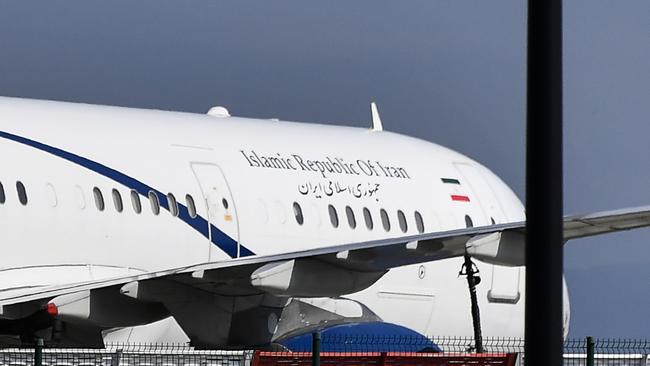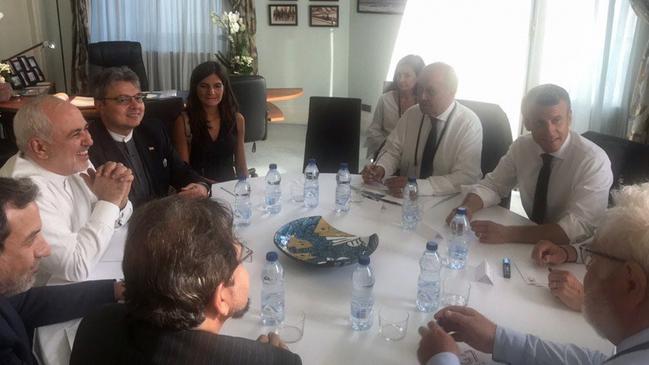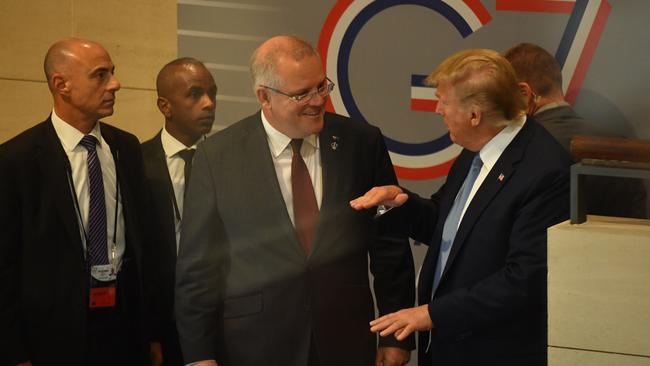Iran’s foreign minister Mohammad Javad Zarif flies to G7
Scott Morrison says he wasn’t given warning of Iranian Foreign Minister’s arrival at Biarritz.

Scott Morrison has admitted that Australia was not given notice about the arrival of the Iranian Foreign Minister to the French resort town of Biarritz where US President Donald Trump and other world leaders were gathered for the G7.
Officials labelled the surprise move by French President Emanuel Macron to invite Mohammad Javad Zarif as provocative, with Australia and Britain having joined the US-led taskforce to protect shipping in the Strait of Hormuz from alleged Iranian harassment.
Following a 20-minute meeting with Mr Trump early yesterday on the sidelines of the summit, in which the taskforce was discussed, the Prime Minister said he had not been told Mr Zarif would visit.
“No, I wasn’t aware of it,” Mr Morrison said.
It appeared other leaders were also caught by surprise. Mr Trump issued a flat “no” when asked whether he would meet with Mr Zarif, who held talks with Mr Macron and French Foreign Minister Jean-Yves Le Drian.
Mr Trump said last night he had agreed to Mr Zarif flying in for a G7 summit and insisted he was not seeking regime change in Tehran — a change of tone that could lower tensions.
But Mr Trump said it was “too soon” for him to meet Mr Zarif.
“I knew everything he (Mr Macron) was doing and I approved everything he was doing,” Mr Trump said, adding that the French President “asked for my approval”.
When asked whether he would meet Mr Zarif, Mr Morrison declined to answer and would not offer an opinion on whether he thought the move by Mr Macron was deliberately provocative.

“We have already had an engagement with Iran on our latest announcements and that’s where the engagements need to take place,” Mr Morrison said.
“I haven’t reflected on it or offered any comment on it at all.”
Mr Morrison said he had also briefed German Chancellor Angela Merkel and Japan Prime Minister Shinzo Abe in meetings earlier in the day about Australia’s involvement in the taskforce.
“Our involvement is straight forward and it is appreciated by the US … our involvement is specifically to deal with safe shipping lanes,” Mr Morrison said.
“I was able to make it very clear what the nature of our involvement was and why we are there … it’s in Australia’s national interest to be there — we are always for freedom of navigation, whether it’s the straits of Hormuz or the South China Sea.”
He said neither Ms Merkel nor Mr Abe had raised concerns.
Mr Morrison repeated Australia’s involvement had nothing to do with the Iran nuclear deal, the Joint Comprehensive Plan of Action, which Mr Trump withdrew the US from last year.
“It’s not about the JCPOA, and Australia’s position on this is we maintain support for the JCPOA, as the UK does,” the Prime Minister said.

“It’s not about that. It’s simply about ensuring there can be free passage of shipping through that important area of the world which directly impacts on Australia’s oil flows.”
Mr Macron has taken the international lead in attempting to defuse tensions with Iran amid fears that a collapse of the nuclear deal could lead to conflict in the Middle East. He met Mr Zarif in Paris on Friday as part of the French leader’s drive to save the JCPOA and discuss ways of alleviating stringent US sanctions that have shattered the Iranian economy.
Mr Trump has previously said he was open to talks but the Iranian regime has refused to negotiate with Washington.
The US President on Sunday claimed that the G7 leaders had not discussed a joint approach to Iran at their dinner on Saturday night, while French officials insisted that an agreement had been reached around the table.
A French spokesman said the decision to invite Mr Zarif was made after the Saturday night leaders’ dinner. Ms Merkel said every opportunity should be seized to reduce tensions and added she had been informed at short notice. An Iranian official said: “Zarif will convey the Iranian leadership’s response to French President Emmanuel Macron’s proposal aimed at saving Iran’s 2015 nuclear deal.”





To join the conversation, please log in. Don't have an account? Register
Join the conversation, you are commenting as Logout